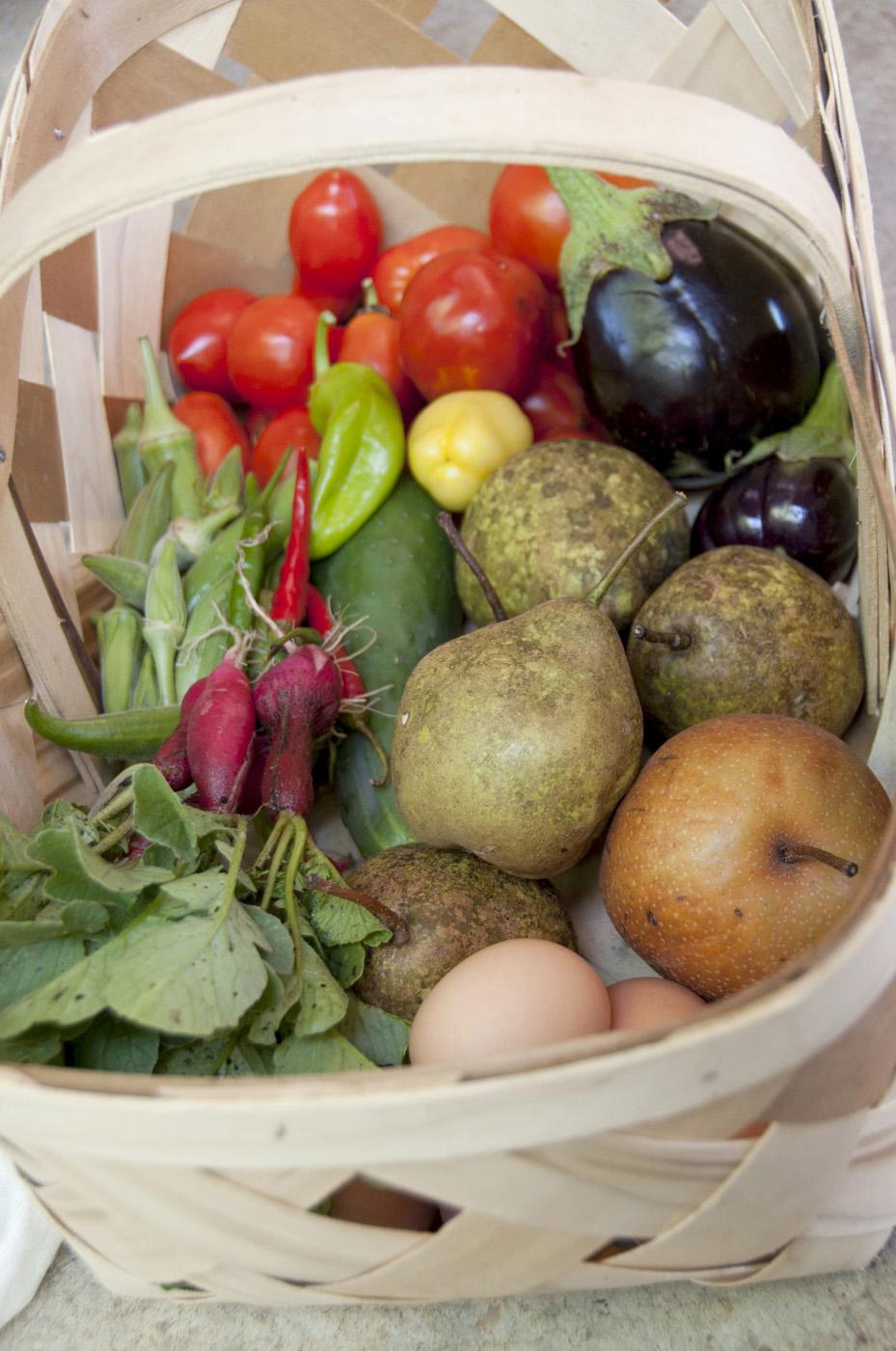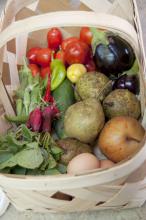Information Possibly Outdated
The information presented on this page was originally released on March 8, 2012. It may not be outdated, but please search our site for more current information. If you plan to quote or reference this information in a publication, please check with the Extension specialist or author before proceeding.
Community gardens help improve health
MISSSSIPPI STATE -- Community gardens have gained popularity in Mississippi recently because they can improve health and environmental sustainability.
“The economy is one reason we have seen a resurgence in interest,” said Lelia Kelly, consumer horticulture specialist with the Mississippi State University Extension Service. “People are staying home more and looking for ways to cut costs and still maintain their quality of life. Teaming up with neighbors and friends to create a community garden helps cut production costs and is an attractive alternative to the high costs of grocery-store produce.”
Cary Lindsey, an undergraduate student at MSU and mother of three, was looking for a way for her family to improve their health and be less dependent on the supermarket for their food.
“I read Lester Brown’s “Plan B 4.0” for a class, and it really got my attention,” Lindsey said. “All of a sudden, recycling wasn’t enough for me anymore. The book really made me think about what my family could do to remove ourselves from the grocery store, have a more positive effect on the environment and live a healthier lifestyle.”
Lindsey convinced her landlord to allow her to start a community garden project on the site of a neighboring house that had been torn down. She invited individuals with varying levels of gardening knowledge to join the project. They built 12 raised beds with materials salvaged from a demolished building and shared tools, such as drills and shovels.
Community gardens allow participants to control the quality, freshness and availability of the fruits and vegetables they grow, Kelly said, making a healthier lifestyle more accessible and affordable.
“People in rural areas will increase the types of fruits and vegetables they have access to simply because a grocery store is only going to stock items that sell quickly,” said Ann Twiner, MSU Extension health agent in Sunflower County who manages a youth garden project.
People are also more likely to eat foods they grow.
“The same is true for kids,” Twiner said. “When they put their hands on it, put the seeds in the soil, water the plants and take care of the plants, they are much more likely to eat the fruits and vegetables produced.”
Lindsey also found this to be true and said gardening is influencing her kids in more than one way.
“I am excited to see how growing their own food impacts their eating habits,” she said. “Not only do we have a more nutritious diet, we save money, and our impact on the planet is lessened. It also connects us to the earth in a really powerful way, and I think that nurtures an appreciation for the environment that I hope causes my children to be better stewards of the planet.”
Community garden projects have the potential to improve the health of Mississippians.
“Many fruits and vegetables we buy at the grocery store must be harvested before they are fully ripe so they can travel the long distances without ruining,” Twiner said. “Fruits and vegetables have more nutrients and are better for us if they are allowed to ripen on the vine.”
The act of gardening itself is a way to be active.
“Everyone knows the benefits of regular exercise, and gardening is exercise,” Kelly said.
Gardening can be economical, especially if it is a community effort where time and resources are pooled.
“People say eating healthy is expensive,” Twiner said. “But you can grow your own fruits and vegetables, and it doesn’t have to be expensive.”
Even for a beginning gardener, starting a community garden is not that complicated, Lindsey said.
“Our garden came together because those who know how to garden shared their expertise with others who wanted to learn,” Lindsey said. “Find the people in your community with the knowledge you need and get them to share. After all, if we don’t do something with what we learn, it’s not worth learning.”
County Extension agents can provide advice and gardening resources for gardeners of all levels. Helpful publications include “The Garden Tabloid,” publication 1091, and “Gardening at Your Fingertips,” publication 2585. These publications offer gardening schedules, pest management information and websites with gardening information.


